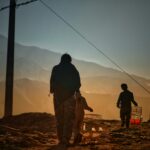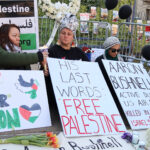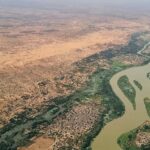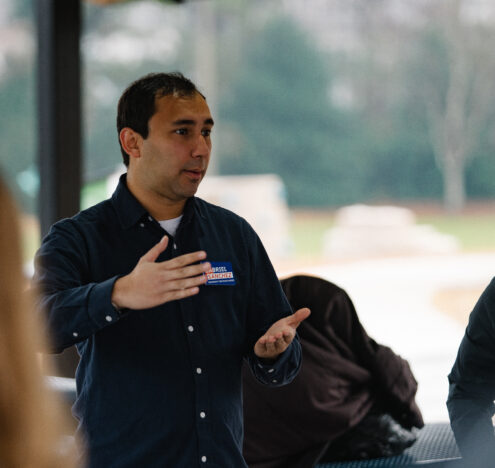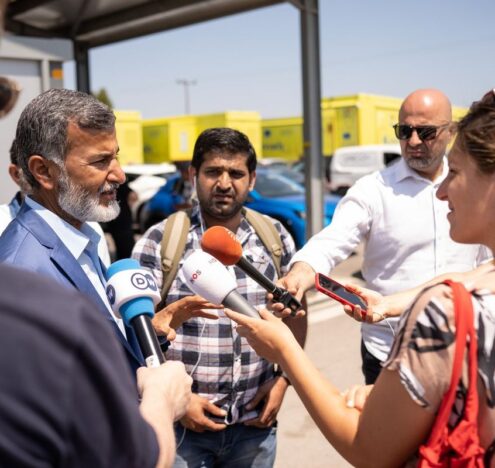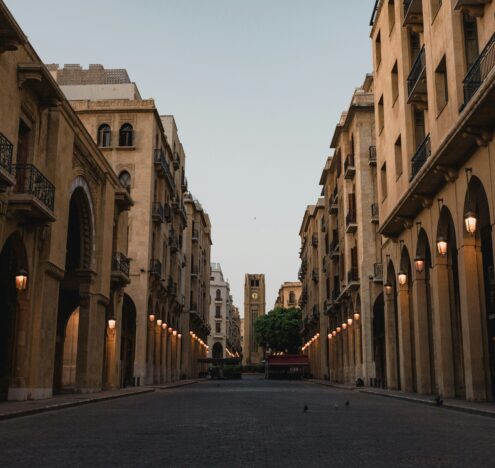On Feb. 25, 2022, Alex, a student at State University of Telecommunications, Kyiv, Ukraine, was stuck in the Ukrainian capital. Along with thousands of civilians fleeing Ukraine’s capital city, he was trying to get to the historic city of Lviv in Western Ukraine, en route to the Polish border. The problem was that in the midst of the exit rush at the train station in Kyiv, there was apparently still time for some of the nastiest, most unvarnished racism he had ever witnessed. The order of priority for getting on the trains out of what had become a war zone overnight was this: White women and children first, white men second, then everybody else afterward if there was any space left.
After much heaving and shoving, Alex and the group of fellow African students with him managed to make it onto the train to Lviv. Upon getting to Lviv, the same scenario played out again. Eventually upon getting to the Polish border after hours of walking through freezing winter temperatures, Alex and his group found themselves facing another round of racial segregation, this time by the Polish border guards who first turned them back at gunpoint, directly violating the 1951 UN Refugee Convention, and then eventually forced them into the second of two queues.
The first queue was for “Ukrainians,” they said, and the other for everyone else. This would sound halfway reasonable were it not for the fact that the “Ukrainian” queue did not require as much as a passport check. Apparently, the only passport one needed to be “Ukrainian” was to be white. The guards would process multiple “Ukrainians” for every “other” they processed, which made the “Ukrainian” queue move much quicker. This incidentally, is in breach of Protocol 1 of the 1977 Geneva Convention, relating to the crime of apartheid.
Even in war, Alex discovered, there is always space and time for anti-Black racism.
A BACKGROUND OF AFRICAN STUDENTS IN UKRAINE
Alex did eventually make it into Poland, where his SkyTV interview from the safety of a hotel room in Warsaw belied the horrors he had just witnessed. Not everyone was so lucky. While Alex had the resources and the presence of mind to document some of the less savory parts of his sojourn to the Polish border, several thousand African students still trapped in Ukraine at the time did not plan on documenting racism while fleeing Russian aerial bombardment.
Voting as a unit at the UN General Assembly would have given Africa — 54 states out of the UN’s 193 member states, with a vote share of 27% — an edge in their collective and individual ability to protect their citizens fleeing Russia’s invasion of Ukraine.
Were it not for Alex and his incontrovertible video evidence of Polish security officials drawing their assault rifles on a group of terrified Africans — who were screaming “We are students!” — a good many influential journalists were ready to write off dozens of such reports as “Russian propaganda.” When Alex’s story was eventually covered and became accepted as true, the next phase of this newfangled “conflict racism” raised its head. Alex and his fellow “immigrants” were apparently supposed to be grateful for being allowed to live in Ukraine, much less flee from there.
The problem of course was that practically none of the Africans caught up in the Ukraine-Russia crisis were “immigrants.” Almost all of them were international students — full fee-paying, expensive accommodation-renting, high-quality education-seeking temporary residents on student visas. The “immigrant” misconception illustrated yet again how little the European public typically knows about Africans in Europe beyond the simplistic narratives of poverty, crime, and “migration.”
The choice of Ukraine as a destination for international students from the developing world has its origins in Cold War-era international politics. Between the 1960s and the late 1980s, several Soviet scholarship programs brought thousands of students from Africa and South Asia to Ukraine and other Eastern Bloc states, training them to become doctors and engineers as part of a diplomatic charm offensive. Three decades after the fall of the Soviet Union, countries like Poland and Ukraine remain popular destinations for students from these countries because of their perceived high educational standards and low tuition costs relative to Western Europe and North America.
HOW AFRICAN GOVERNMENTS RESPONDED
By 2020, Nigeria had approximately 4,000 citizens studying in Ukraine — second in foreign student numbers only to Morocco’s 8,500, and just ahead of Egypt’s 3,500. Together, these three countries made up 20% of total foreign students in Ukraine. For the Nigerian government, this might have been a good opportunity to issue public or diplomatic messaging stating these facts, and reiterating the economic importance of Nigerian international students to their host countries. It might have pointed out that for these relatively privileged few studying outside Nigeria, Eastern Europe was hardly going to be their permanent destination. Instead, the only outcome of a Feb. 25, 2022 meeting in Abuja between Nigerian Foreign Minister Geoffrey Onyeama and ambassadors of the G7 bloc regarding cooperation on the Russia–Ukraine crisis, was an ego-boosting statement reaffirming Nigeria’s “importance,” without giving a single guarantee or concession that would have confirmed said importance.
The African Union (AU), which seems easy to forget, is a fully functioning continental body with 54 member states. Yet, the AU did not deign to put out a statement on the horrors being faced by African students in Ukraine until three days after the news initially broke. Neither a sharp rebuke nor a ringing endorsement of anyone, the statement made only an indirect reference to the racist incidents in Ukraine. Rather than strongly condemn the events, the statement made a mealy-mouthed reference to “reported ill-treatment” and proceeded to say very little else.
Apart from arriving late and not taking a definite stand on the issue, the problem with the approach adopted by the AU and its member states is the seeming lack of ability to use its numbers to extract even the most basic concessions from the world to help African citizens trapped in Ukraine. This was especially in evidence during the vote at the UN General Assembly Resolution ES-11/1 censuring Russia for invading Ukraine. Of Africa’s 54 states, 28 voted in favor, 17 abstained, and one (Eritrea) opposed, while 8 weren’t even in the room.
WHAT AFRICAN GOVERNMENTS SHOULD HAVE DONE
African governments’ votes at the UN General Assembly resolution on Mar. 2, 2022, which indicates a split down the middle, tells an unfortunate story about how Africa has reacted to this crisis. By doing more of the same haphazard, unstrategic, individual horse-trading, African governments have discarded long-term group interests for their own short-term national interests. Unfortunately, this is a familiar story in African geopolitical circles, where AU member states regularly ignore the possibilities presented by continental cooperation and place more value on bilateral trade, defense, and diplomatic agreements with individual G7 states.
According to the AU’s own figures, for example, Africa’s rate of intraregional trade is only 10%, which is by far the world’s lowest. To fix the multiple trade, travel, and diplomatic barriers across the AU, the African Continental Free Trade Area (ACFTA) was launched in January 2021. More than a year later, it continues to be mostly conceptual, with seemingly no roadmap to actual continental rollout. While the ACFTA lies in suspended animation, bilateral trade agreements with the US, EU, and China continue to dominate diplomatic attention in countries like Kenya and Rwanda. South Africa, Botswana, Lesotho, Mozambique, Namibia, and Swaziland signed the Southern African Economic Partnership Agreement (SADC EPA) with the EU in 2016 — three years after the ACFTA was mooted at the AU.
What Onyeama and his colleagues across the continent should have done was to establish and communicate a coherent collective position on the crisis. Voting as a unit at the UN General Assembly would have given Africa — 54 states out of the UN’s 193 member states, with a vote share of 27% — an edge in their collective and individual ability to protect their citizens fleeing Russia’s invasion of Ukraine. Acting together would have also enabled African governments to extract guarantees from Ukraine and its neighbors regarding the treatment of fleeing African foreign students seeking refuge.
Alex and those who traveled with him at least, are safe. The hundreds of other African students currently stuck in Ukraine can only hope for the best.
David Hundeyin is a Nigerian writer, investigative journalist, and broadcaster. In 2018, he was nominated by the US State Department for the 2019 Edward Murrow program for journalists under the International Visitors Leadership Program. In February 2021, he won the People Journalism Prize for Africa 2020.









